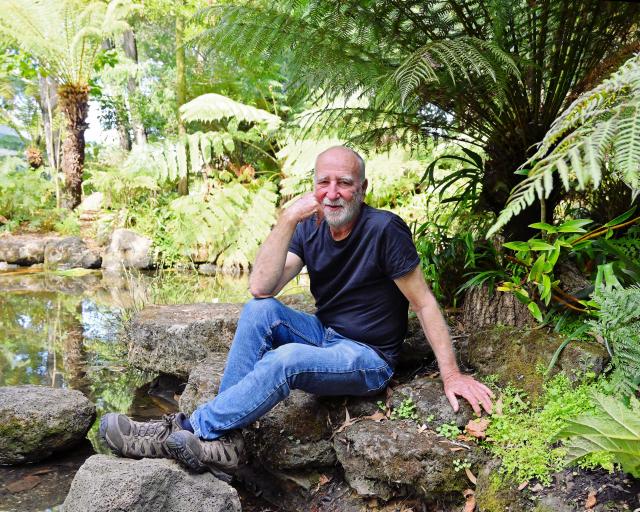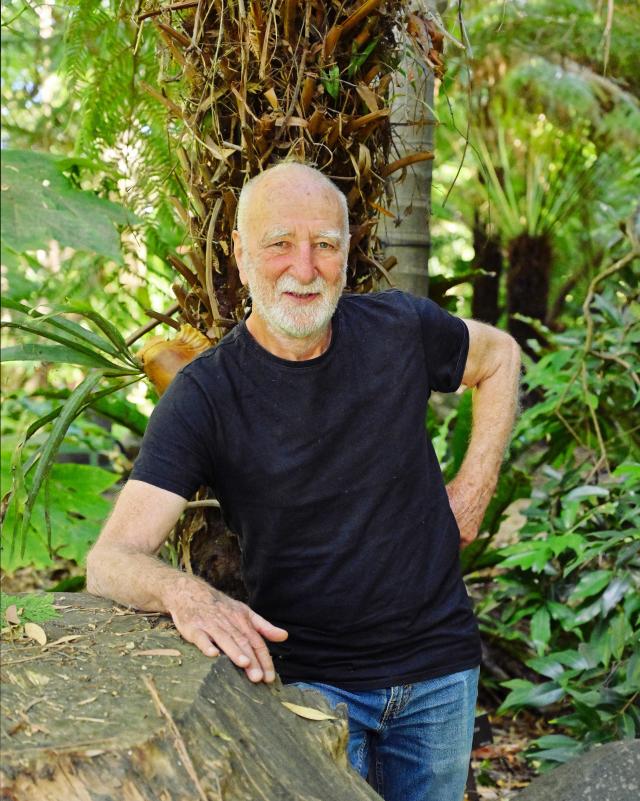Geelong West’s Paul Bucci is one of eight winners of Sage to Stage, a national playwriting competition for people aged 60 and over. Matt Hewson spoke to him about creativity, social issues and taking the mickey.
People write books, songs, poems and plays for many reasons. For some, writing is a means of expression; for others, it’s a path to success or a way to earn a living.
Many people write to convey a message, to champion a cause, to have a positive impact on the world.
But for Paul Bucci, the act of writing is, among other things, a form of personal entertainment.
“I’m a bit beyond thinking I’m going to have an impact,” Paul said.
“My genre is piss-take, right? I don’t know whether that’s an official genre, but what comes out when I write is stuff that amuses me, that has a sort of wry look on the world.
“And I think it’s really very therapeutic. I mean, being retired, I could spend all day twiddling my thumbs – and I do, some days – but it’s good to have projects and objectives, to add a bit of meaning to your life.
“And if it’s going to entertain other people… that’s a real buzz, hearing people laughing at your plays. So it’s a whole package; of time-filling, also therapy, and entertainment for other people.”
Paul was recently named as one of the eight winners of the inaugural Sage to Stage, a playwriting competition exclusively for seniors.
The brainchild of Scene Theatre Sydney’s artistic director Carol Dance, the national competition received 164 entries from around Australia.
The eight winners will travel to Sydney on Sunday, March 24, where their short plays will be performed as a “moved reading” by a quartet of all-star Australian actors under the direction of Sydney dramaturg and producer Ryan Whitworth-Jones.
Paul said he was “delighted” to unexpectedly receive word his submission, Allocateeism was one of the winning entries.
“When you enter a competition you don’t think you’re going to necessarily achieve much, so yeah, I was really pleased,” he said.
Allocateeism sits firmly within Paul’s self-described genre of piss-take; “Basically, it’s about the housing crisis, it’s very tongue-in-cheek”, he said.
Paul’s play opens with two pensioners, Dave and Mary, receiving a knock at the door. They open it to find reallocation officer George on their doorstep with two homeless people, one of which they must take on as a lodger, in accordance with new government policy.
“So it’s the government knocking on the door with a couple of homeless people and putting these people on the spot, pensioners, telling them they’ve got to choose one or the other and that’s the basis of it,” Paul said.
Paul tackles the absurdities of both Australia’s homelessness problem – “It’s a big issue, a solvable issue, that’s not being tackled” – and the heavy-handed approach many governments take to social issues.
“The reality of people’s lives is often very different from the way the government sees it,” Paul said.
“And (Dave and Mary), these are old people, so I’ve stereotyped them a being not very computer savvy, not really following a lot of the subtleties of the developments of the world around them, and the government being fairly blinded to that.”
“(My plays) usually have some kind of social issue. Housing has been a common theme over the last two or three that I’ve been involved in, but with a humorous take on it.”
Born in 1940s London, Paul came to Australia in 1974, originally living in Melbourne. In 1988, Paul and his young family moved to Port Fairy to enjoy a slower pace of life.
They lived there for 30 years, and during that time Paul worked mainly in community service, youth work, recreation and arts management.
“The last job I had was as an international student advisor at Deakin in Warrnambool,” he said.
“And I’ve done all sorts of other jobs… gardening, shop work and factory work, all that stuff. Taxi driving… I found that fascinating, absolutely fascinating. You see things quite differently from that perspective.”
During that time, Paul found his way into the Port Fairy Theatre Group, although his inspiration was perhaps not typical of most of its members.
He found himself attending one of the group’s performances and was thoroughly unimpressed.
“I walked out at half time, but then I started thinking: it was written by a local person, and (walking out) was a bit rude,” he said.
“Do something better then, is basically what I said to myself. So I approached them and suggested they have a short play competition, and I got half a dozen of my friends to write plays.
“Then that took off, so now every year they have a short play competition where they get about 20, 25 entries and perform six or seven of them.”
Now retired, Paul moved to Geelong West nearly three years ago, and has since found more time to dedicate to writing short stories and plays, among other things.
“Since I’ve been in Geelong I’ve just been following my nose; if I see an opportunity to do something I’ll get on with it,” he said.
One of those opportunities was the Australian Slam Poetry Competition in 2022. Though Paul maintains he is “not a poet”, he entered the Geelong heat and won.
He then came runner-up in the Victorian heat, and ended up reading a poem at the Opera House in the final of the competition.
More recently, he has been involved in Geelong Writers – “It’s a very strong and supportive group” – and will feature in an upcoming Coles commercial.
Paul said the Sage to Stage competition provided an opportunity for seniors to stay creatively active.
“I’m not a great believer in ageism, segregation by age, but it is a fact that retired people often have a bit of difficulty replacing work with some other form of meaning and social involvement,” he said.
“What you find as you get older is that people are less and less attentive to you. And, you know, you do it yourself.
“You see an old bloke or an old woman and you see them as an old bloke or an old woman. You don’t see them as somebody who has been, I don’t know, a copper for 50 years or running a bakery or whatever. They’re just somebody whose life is kind of reaching an end.
“So something like this can be quite powerful for people. I mean, they had 160-odd entries to this competition, which means 160-odd people have been seriously involved in attempting to write a play and put in that work.
“I think these things, activities for older people, are really important.”










